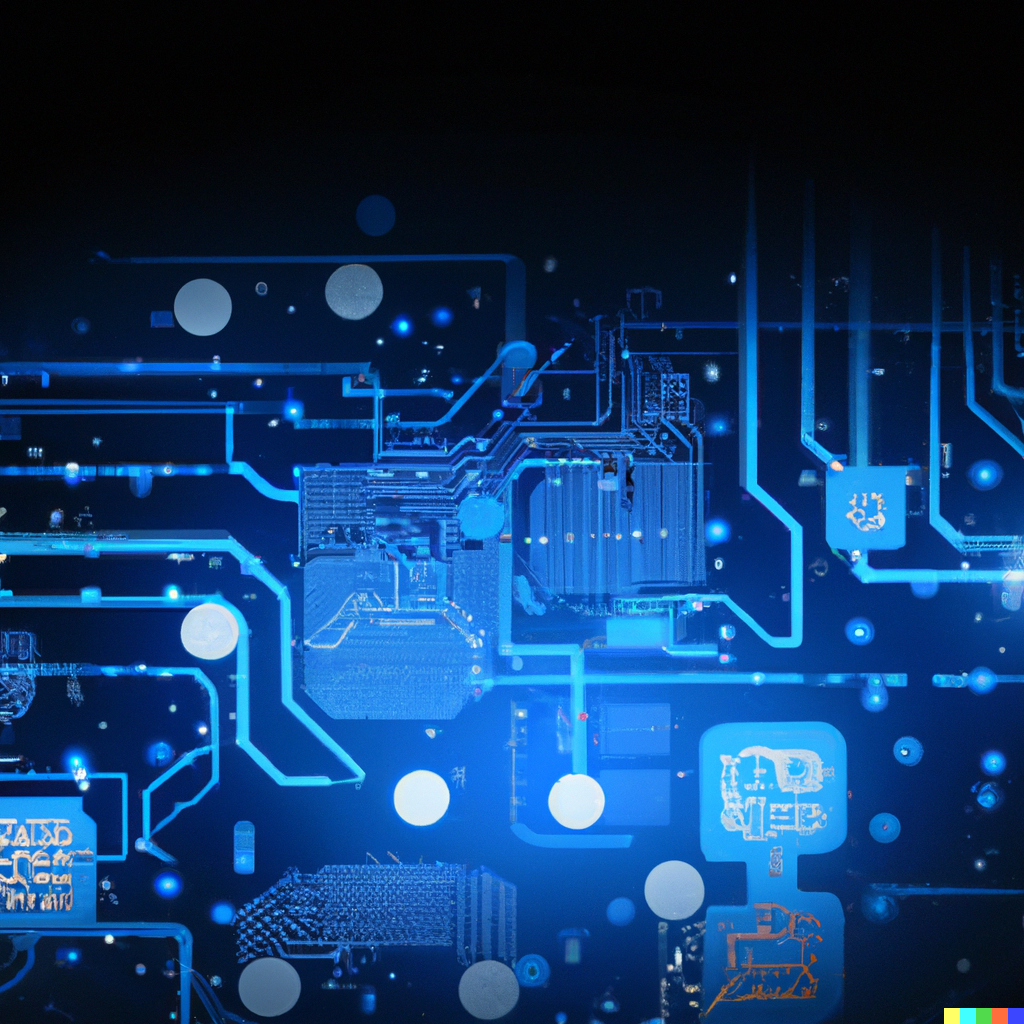Thematic Units
The thematic units include several related topics that will be dynamically adjusted according to research developments and broader research needs, following a recommendation from the Coordinating Committee and approval by the General Assembly (GA) of the School. They indicatively include:
1st SEMESTER – A compulsory selection of 3 from the following units
| No | Thematic Unit | ECTS credits | Supervisors |
| MPHIL1 | Data science Data Mining, Knowledge Extraction Algorithms, Statistical Thinking. | 10 | Varlamis, Vamvakari, Michail, Papadopoulos, Efthymiou, Diou. |
| MPHIL2 | Machine Learning Deep Learning, Representation Learning for Images, Audio, Text and Signals, Robust ML, Out-of-distribution generalization, Interpretable ML, Reinforcement Learning and Autonomous Agents. | 10 | Diou, Charalambidis, Varlamis, Papdopoulos, Efthymiou |
| MPHIL3 | Embedded systems, Computer Vision and Robotics Real-time, mobile, small scale embedded systems, Human-robot interaction, Modeling & simulation environments, Computer Vision. | 10 | Papadopoulos, Diou, Xydis, Violos, Dimopoulos |
| MPHIL4 | Computing Infrastructures, Services and Systems Cloud Infrastructures, Cloud Services, Intranets, Fog, edge and cloud computing, Dynamic resource management, Autonomous systems | 10 | Kousiouris, Nikolaidou, Tserpes, Violos |
| MPHIL5 | System security and Cryptography Cybersecurity, Network security, IoT security, Cryptography techniques | 10 | Rizomiliotis, Michail, Charalambidis, Varlamis, Dede |
| MPHIL6 | Technology Management Information Systems, Business Systems Application Landscape, Digital Transformation, Data Management, Decision Support, Business Process Management, Modeling Languages, Supply Chain Digitization, Business Analytics, Evaluation/Valuation of Systems and Services, IS Success, Pervasive IS, Technology Acceptance, Education and Technology | 10 | Bardaki, Stamati, Michalakelis, Sofianopoulou, Anagnostopoulos, Dede, Filiopoulou |
| MPHIL7 | System Engineering & Technology Requirements Analysis & Engineering, System Design, System Modeling – SysML, Design Methodologies, Ethical and Sunstainable System and Service Engineering, Disruptive Technologies, Techno-economic Analysis of Systems and Services, Systems-of-Systems, Digital Twins, Gamified IS, System Evaluation, Simulation, Information Quality, User Behavior, User Acceptance, Business Impact/ KPIs effect, ICT Market Investments Assessment | 10 | Nikolaidou, Bardaki, Tserpes, Κousiouris, Dede |
| MPHIL8 | Communication and Network Technologies Study of the natural layer. Network Protocols. Network Management. Systems and Communication Models. Simulation of Systems and Communications. Systems Implementation. Sensor Networks. 5G/6G systems. Performance evaluation and network optimization algorithms. Techno-economic valuation of communication technologies, Artificial Intelligence in Communication Networks. Software-Defined Networking. | 10 | Liotou,Dimitrakopoulos, Kamalakis, Michalakelis. |
| MPHIL9 | Programming Languages/Software Systems Theory and Design of Programming Languages, Design and Implementation of Modern Software Systems, Static and Dynamic Analysis, Automatic Program Analysis, Dynamic Languages, Modern Compilation and Optimization Techniques, Languages and Technologies for Parallel/Distributed Systems, Code Generation, Error Analysis | 10 | Charalampidis, Tserpes, Michail |
| MPHIL10 | Algorithms and Optimization Theoretical Computer Science, Theory of Computing, Design and Analysis of Algorithms, Data Structures, Algorithm Engineering, Optimization, Linear and Integer Programming, Convex Optimization, Non-Linear Optimization | 10 | Michail, Anagnostopulos, Charalampidis, Vamvakari. |
| MPHIL11 | Internet of Things Internet of Things and Applications, Services and applications in smart environments, Intelligent Transport Systems and Autonomous Driving, Smart cities, e-health | 10 | Dimitrakopoulos, Nikolaidou, Kousiouris, Bardaki, Liotou, Dimopoulos. |
| MPHIL12 | Photonic and Quantum Systems and Applications Optical Logic, Optical Gates, Optical Signal Processing, Optical Telecommunication Networks, Photonic Technologies for Data Centers, Plasmonic Technologies, Photonic Crystals, Optical Wireless Systems, LiFi, Satellite Optical Systems, Photonic Packet Switching. Quantum Gate Implementation Technologies, Quantum Circuits, Quantum Search Algorithms, Integer Factorization, Quantum Information Theory, Quantum Codes, Effects of Quantum Decoherence, Quantum Computer Simulation, Quantum Cryptography, Post-Quantum Cryptography. | 10 | Kamalakis,Rizomiliotis, Michalakelis, Dede, Eythymiou, Michail. |
| MPHIL13 | Knowledge Management Big Data Algorithms, Data Matching,Knowledge Representation and Reasoning, Semantic Web Technologies, Knowledge Graphs. | 10 | Eythymiou, Charalampidis, Michail, Varlamis. |
| MPHIL14 | ICTs in Education Digital skills, Use of Augmented Reality (AR) and Virtual Reality (VR) in teaching, Educational utilization of Artificial Intelligence (AI), Digital training of educators, Evaluation of distance training programs using digital platforms, Distance Education & Blended Learning Models, Mobile Technologies and Education, STEM/STEAM, Robotics, Flipped Classroom using digital tools, Game-based learning, Digital Citizenship | 10 | Sofianopoulou, Varlamis, Gasparinatou, Filiopoulou |
| TOTAL ACCREDITED ECTS | 30 |
2nd and 3rd Semester
Research
| No | Thematic unit | ECTS Credits |
| MPHIL | MPhil Dissertation | 60 |
| TOTAL ACCREDITED ECTS | 60 |
To complete the program 90 ECTS are required..
MPhil Dissertation
Each postgraduate student must complete a Diploma Thesis which corresponds to sixty (60) ECTS credits. To be able to submit and present the thesis students must first have submitted its content or part of it, in the form of a scientific article, to an international peer-reviewed journal or conference.
The diploma thesis is evaluated by a three-member committee, composed by the MPhil professors. A faculty member, the supervisor, defines the topic of the Thesis. The title of the thesis and the supervisor are declared to the Secretariat on a form co-signed by the student and the supervisor. The suggestions of topics come to the GA where each supervisor nominates the other two members of the three-member committee of the student who may be i) faculty members of the Department of Informatics and Telematics or other Departments of Harokopio University, ii) faculty members or tutors from other departments of the country or abroad, iii) researchers of levels A’, B’ or C’ of recognized Research Centers or Institutions of the country or abroad, as long as they are holders of PhD and have recognized scientific work.
Diploma Theses are original research works and aim to produce research results with wider scientific interest as a result of students’ work in performing experiments or implementing systems. Therefore, in order to be able to submit and present the thesis, the students must first have submitted its content, or part of it, in the form of a scientific article, to an international peer-reviewed journal or conference.



